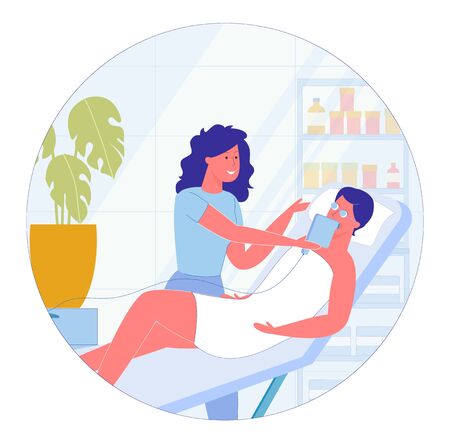Understanding Self-Care for New Mums in the UK
In the UK, becoming a new mum is a transformative journey filled with both joy and challenges. British culture values resilience, community spirit, and finding balance amidst daily pressures. For many new mothers, self-care may seem like a luxury rather than a necessity, but prioritising wellbeing is essential for both mother and baby. The unique experiences of new mums in the UK—such as adjusting to unpredictable weather, navigating the NHS system, and managing family expectations—can add specific pressures that make self-care even more important. Understanding what self-care means within this context helps empower mothers to take practical steps towards mindfulness and emotional health without feeling guilty or overwhelmed.
| Common Challenges for New Mums in the UK | How Mindfulness Can Help |
|---|---|
| Lack of sleep due to frequent night feeds | Practising short breathing exercises before bed can improve rest quality |
| Feeling isolated during maternity leave | Joining local mum-and-baby groups supports social connection |
| Navigating public transport with a pram | Using mindfulness to stay present reduces anxiety during travel |
| Coping with changeable weather limiting outdoor activities | Indoor mindful movement or guided meditation offers alternatives |
By recognising these everyday realities, new mums in Britain can adopt self-care routines tailored to their environment and lifestyle. Whether it’s savouring a quiet cup of tea, taking mindful walks in the park when the weather allows, or simply asking for help from friends and family, these small acts collectively build resilience and foster a sense of well-being that benefits both mother and child.
2. Mindfulness Practices that Suit the Busy British Lifestyle
For many new mums in the UK, days are filled with nappy changes, night feeds, and an endless to-do list. It’s easy to feel overwhelmed and lose sight of your own wellbeing. However, mindfulness doesn’t require hours of free time or a quiet countryside retreat. Here are practical mindfulness techniques tailored for the fast-paced British lifestyle—perfect for squeezing into even the busiest schedules.
Everyday Mindfulness Techniques
| Technique | Description | Where to Practise |
|---|---|---|
| Tea Break Breathing | Take a few deep breaths each time you make a cuppa. Focus on the warmth, aroma, and taste. | Kitchen or living room |
| Mindful Pram Walks | While out with the pram, notice the sights, sounds, and sensations around you. Engage your senses fully. | Parks, high streets, or neighbourhood pavements |
| Five-Minute Body Scan | Gently bring awareness to each part of your body while baby naps or plays safely nearby. | Bedroom or nursery |
The Power of Little Moments
You don’t need a spa day to reset your mind; instead, focus on small moments throughout your routine. Whether it’s pausing during a feed to notice your breath or savouring a biscuit without distraction, these simple practices can help restore calm and clarity amid chaos.
Safety Tip:
If you’re practising mindfulness while caring for your baby—such as during walks or feeding—always ensure your child is safe and supervised at all times. Self-care works best when both you and your baby are secure.

3. Incorporating Mindfulness into Everyday Moments
For new mums in the UK, finding time for self-care can feel challenging. However, mindfulness does not require long periods of silence or special settings—it can be woven into the rhythm of daily life. Embracing British traditions and routines offers unique opportunities to practise mindfulness, even amidst the busyness of motherhood.
Mindful Pram Walks
Taking your baby out for a pram walk is not just beneficial for fresh air and exercise; it’s also a chance to ground yourself in the present moment. As you stroll through your local park or along quiet streets, notice the changing weather, the scent of rain on pavements, or birdsong overhead. With each step, pay attention to your breath and how your body feels. This simple awareness can reduce stress and enhance your sense of connection to both your baby and your surroundings.
Tea Breaks as Pause Points
The classic British tea break is more than just a tradition—it’s an opportunity for mindful pause. While you brew your cuppa, take a few moments to notice the aroma and warmth of your tea, and let yourself enjoy this brief respite. Use these pauses throughout your day as reminders to breathe deeply and check in with how you’re feeling.
| Daily Activity | Mindfulness Practice |
|---|---|
| Pram Walks | Notice sights, sounds, and sensations; practise deep breathing with each step. |
| Tea Breaks | Savour the aroma and taste; use the time for three slow, intentional breaths. |
| Caring for Baby | Focus on your babys expressions, touch, and sounds; bring gentle attention to each interaction. |
Caring for Baby Mindfully
Nappy changes, feeding times, and cuddles are all everyday moments that can become mindful rituals. Instead of letting your mind wander to tasks ahead, gently anchor your attention to your baby’s needs—notice their tiny hands, soft skin, or gentle breathing. These small acts of presence foster bonding while providing micro-moments of calm for yourself.
Tip:
If you find it difficult at first, set gentle reminders on your phone or stick post-it notes around the house with prompts like “Take a breath” or “Notice this moment.” Over time, these cues will help mindfulness become a natural part of your day.
4. Building a Support Network in the Community
For new mums in the UK, self-care isn’t just about what you do alone—it’s also about who you have around you. Creating a reliable support network can greatly enhance your ability to practise mindfulness and look after your own wellbeing. Connecting with local mum-and-baby groups, making use of NHS resources, and joining online British parenting forums are all practical ways to feel supported and understood during this life-changing period.
The Value of Local Mum-and-Baby Groups
Attending mum-and-baby groups at your local community centre or church hall is not only a great way to combat isolation but also offers opportunities for shared mindfulness activities. Many UK-based groups incorporate baby yoga, sensory play, or guided relaxation sessions for mums. These gatherings encourage open conversation, allowing new mothers to share experiences and strategies for managing stress in a non-judgmental setting.
Making Use of NHS Resources
The NHS offers a range of services specifically designed for new mothers—from health visitor drop-in clinics to postnatal mental health support. These resources are easily accessible and offer both face-to-face and virtual support, which means you can find help whether you prefer in-person connection or digital convenience. Mindfulness-based cognitive therapy (MBCT) courses are increasingly available through the NHS and can be tailored to fit the needs of new parents.
Online British Parenting Forums: Connection at Your Fingertips
Sometimes it’s hard to leave the house with a newborn—this is where online communities come into their own. British parenting forums such as Mumsnet, Netmums, and BabyCentre UK provide platforms for advice, shared stories, and emotional support at any hour of the day. Many threads focus on mindfulness tips for busy mums, recommendations for local classes, and coping strategies unique to life in Britain.
Comparing Support Options for New Mums in the UK
| Support Option | Mindfulness Benefits | How to Access |
|---|---|---|
| Local Mum-and-Baby Groups | In-person connection; shared relaxation activities; peer support | Community centres, libraries, local Facebook groups |
| NHS Resources | Professional guidance; MBCT courses; postnatal mental health care | NHS website, GP referral, health visitor recommendation |
| Online British Parenting Forums | 24/7 access; wide range of perspectives; anonymity if desired | Mumsnet, Netmums, BabyCentre UK websites and apps |
Practical Tip:
If you’re unsure where to start, ask your health visitor or midwife about recommended local groups or NHS classes. Don’t underestimate the power of reaching out—many mums find lifelong friends simply by starting a conversation over a cup of tea at their village hall.
5. Setting Boundaries and Asking for Help
For many new mums in the UK, self-care means learning to set healthy boundaries and confidently reaching out for support. In British culture, where privacy and politeness are highly valued, it can sometimes feel challenging to voice your needs or accept help. However, clear communication is essential for your wellbeing during this transformative period.
Communicating with Family and Friends
Whether you’re surrounded by family or living farther away, expressing your needs is vital. Consider using gentle but firm language to set expectations and ask for assistance. Here’s a simple guide:
Situation |
Suggested Phrase |
|---|---|
| Visitors wanting to drop by unannounced | “We’d love to see you, but could you let us know in advance? Were still settling into our new routine.” |
| Needing time alone to rest or practise mindfulness | “I’m taking some quiet time for myself; could we catch up later?” |
| Asking for help with chores or errands | “Would you mind picking up a few bits from the shop? It would really help me out.” |
Utilising British Healthcare and Social Support Systems
The UK offers extensive support for new mothers through the NHS and local community services. Don’t hesitate to make use of these resources:
- Health Visitors: Regular check-ins are available post-birth. Feel free to discuss any concerns about your mental health or parenting challenges.
- GP Services: Your local GP can offer advice on both physical and mental health, including referrals for counselling if needed.
- NHS 111 Helpline: A valuable resource for non-emergency medical advice at any hour.
- Parent Groups & Children’s Centres: Many communities offer drop-in sessions—these are safe spaces to share experiences and seek peer support.
- Mental Health Charities: Organisations like Mind or PANDAS Foundation provide helplines and online resources tailored for perinatal mental health.
The Importance of Saying ‘No’
Remember, saying ‘no’ isn’t impolite—it’s an act of self-care. Politely declining extra responsibilities allows you more energy to focus on yourself and your baby. Embracing support from loved ones and community services is not only sensible, but also an integral part of British self-care culture. Taking these steps ensures that you can nurture your own wellbeing while caring for your newborn.
6. Self-Care Resources for New Mums
Building a sustainable self-care routine as a new mum can feel daunting, but there are many trustworthy UK-based resources designed to support your wellbeing. Whether you’re looking for mindfulness apps, supportive organisations, or insightful reading materials, the following table highlights recommended options that fit seamlessly into a British lifestyle.
| Resource Type | Name | Description | Where to Find |
|---|---|---|---|
| Mindfulness App | Headspace | A popular app with guided meditations and mindful parenting exercises; offers a UK-specific experience. | App Store / Google Play |
| Mindfulness App | Clementine | Created in the UK for women’s mental wellbeing; features short sessions tailored for mums. | App Store / Google Play |
| Organisation | Mind UK | Offers resources and helplines specifically for maternal mental health and mindfulness support. | mind.org.uk |
| Organisation | PANDAS Foundation UK | Provides peer support and information for parents experiencing perinatal mental health challenges. | pandasfoundation.org.uk |
| Reading Material | The Little Book of Mindfulness by Dr. Patrizia Collard | A compact guide written by a UK-based expert, ideal for busy mums needing quick tips. | Major UK bookstores / Libraries |
Additional Tips for Using These Resources Safely
- Always download apps from trusted sources such as the official App Store or Google Play to protect your privacy and security.
- If joining online forums or communities, choose well-moderated groups with clear safeguarding policies.
Integrating Self-Care Into Your Routine
Start small—perhaps five minutes of guided breathing with Headspace while your baby naps, or reading a chapter from The Little Book of Mindfulness over a cup of tea. Use local NHS resources or ask your health visitor about free workshops or support groups in your area. Remember, self-care is not selfish: it’s essential for both you and your family’s wellbeing.


